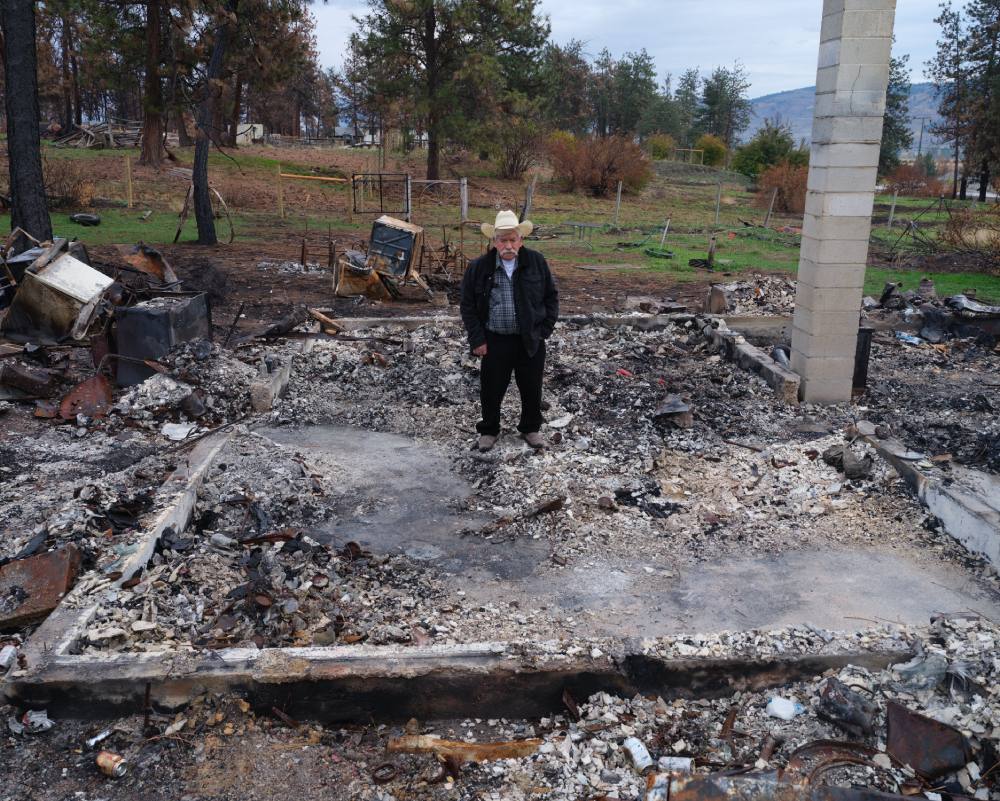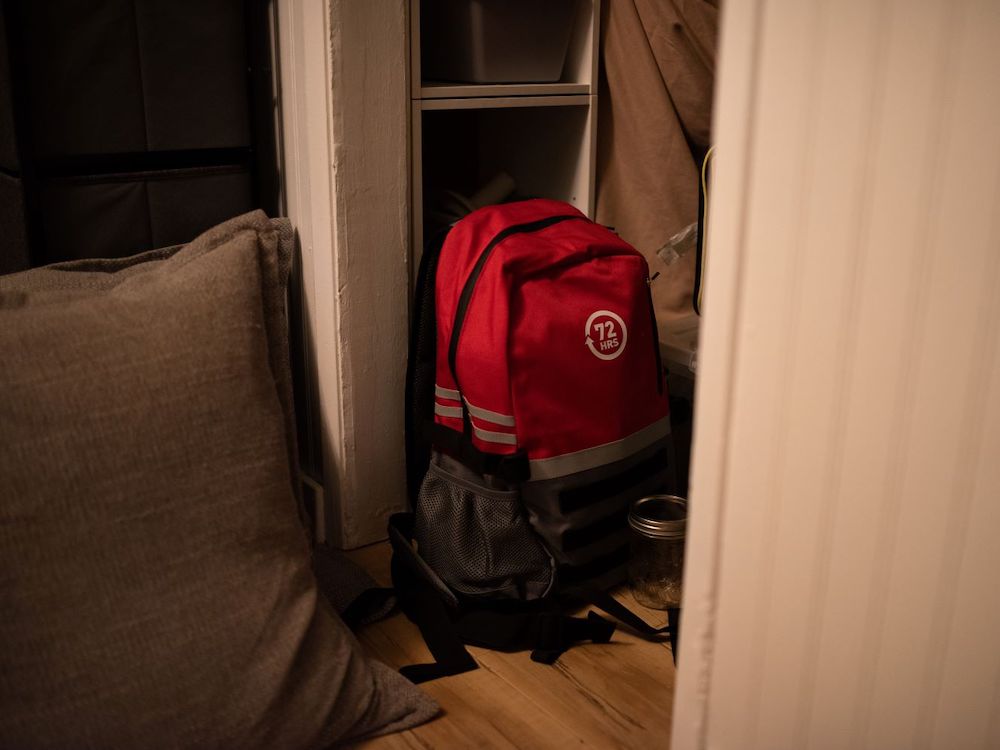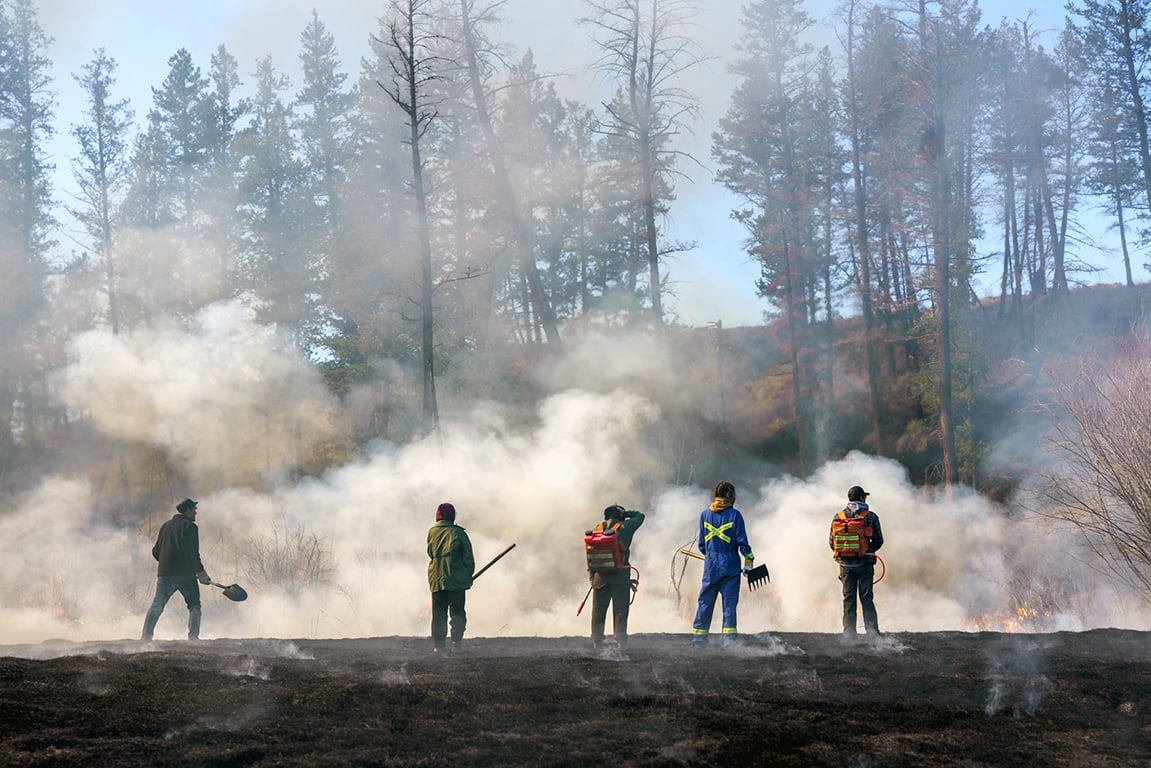As British Columbians endure their province’s worst ever season for wildfires, some of us at The Tyee have long memories. Long enough to recall an article we published in 2004 headlined: “How BC Was Built to Burn.”
Prophetically, the piece said “Global warming and other weather trends point towards worsening fire conditions in B.C.’s future.” But noted that “until now, it has been difficult to convince British Columbians to build fire resistant homes and communities, say frustrated experts and officials.”
Since then, we have published dozens of in-depth pieces on how forest management, structural design, community preparation and other factors rose in critical importance as the climate crisis grew. A sampling:
In 2017, The Tyee’s Andrew MacLeod quoted a Skawahlook First Nation Hereditary Chief and a former B.C. cabinet member, both on a B.C. flood and wildfire review panel, saying more prevention measures and targeted spending are needed to mitigate future calamities.
“It’s advice the government has received before, including in a report by former Manitoba premier Gary Filmon on the 2003 fires in the Okanagan that recommended doing more to reduce risks in places where wildlands border cities, but failed to act on,” wrote MacLeod.
Review Calls for Prevention to Reduce Forest Fire Risk
Climate change means 2017 catastrophe likely to be repeated: George Abbott. By Andrew MacLeod
Award-winning science journalist and author of two wildfire books Ed Struzik has shared his acute insights a number of times for The Tyee. In a 2021 offering, he ticked off the factors that led to the immolation of Lytton and the forming of a new kind of monster across Canada.
The Future of Fire in Canada
We’re on the brink of a ‘runaway fire age.’ Here’s why. And how to respond. By Ed Struzik
Last year, Struzik elaborated:
We Still Haven’t Learned to Live with Wildfires
Despite a long history of devastation in Canada, politicians have failed to do what’s necessary to prevent future fires. By Ed Struzik
Another acclaimed author who writes about humans colliding with nature, Vancouver-based John Vaillant, spent seven years writing Fire Weather, detailing the Fort McMurray wildfire of 2016 and all it portends. Our review this spring highlighted a climate crisis paradox at the heart of Vaillant’s book.
“One of the themes running through Fire Weather is the “Lucretius Problem.” Lucretius was a Roman poet and philosopher; in his book On the Nature of Things, he observed that we can’t imagine a river any bigger than the biggest river we’ve personally ever seen.
“In essence,” Vaillant explains, "the Lucretius Problem is rooted in the difficulty humans have imagining and assimilating things outside their own personal experience.’”
When John Vaillant Contemplates Catastrophe, We Should Listen
‘Fire Weather’ examines the lies we tell ourselves about climate change, and what needs to happen next. By Crawford Kilian
Six months after 2021’s summer of flames, The Tyee’s Michelle Gamage hit the road to gather perspectives of those trying to recover.
“We meet people who are furious with governments’ response to the fires, critiquing the lack of assistance, muddled emergency responses and a failure to take action to prevent wildfires. We meet people who openly cry as they look at the soggy heap of twisted metal and ash that was once their home. We meet people who are putting one foot in front of the other, working to rebuild their homes, neighbourhoods and communities one piece at a time.”
'Everything Is Burning and Your House Is Gone'
We spent 10 days talking to survivors of this summer’s wildfires. Here’s what we learned. By Michelle Gamage

In 2017, we reported on the agonizing choice faced by members of communities threatened by advancing blazes.
Wildfires: Should BC Do More to Help Homeowners ‘Stay and Defend’?
It’s risky, but many saved their property by not evacuating. The Tl’etinqox First Nation fought side by side with firefighters. By Zoë Ducklow
Earlier this summer, as part of our comprehensive Bracing for Disasters series on fails and fixes for B.C.’s disaster response systems, we collaborated with the Climate Disaster Project to share 11 first-person accounts by flood and wildfire survivors across B.C. Their as-told-to stories are by turns harrowing, inspiring and instructive.
Surviving, in Their Own Words
Meet 11 British Columbians who share their climate calamity ordeals and offer lessons for what’s to come.
As part of her Bracing for Disasters series, Tyee reporter Francesca Fionda provided an in-depth guide to what you should do to be ready before an emergency occurs, and how to navigate the dangers to find help and recover afterwards. Clip and save this one.
How You Can Be Ready for the Next Disaster
As fires and floods again beset BC, here are tips and resources from survivors and experts. By Francesca Fionda

In 2021, Tyee senior editor andrea bennett, who lives in Powell River and has no car, researched the escape options for those who may be short on resources, disabled or both.
How Would I Evacuate from My Small Town Without a Car?
BC’s emergency preparedness seems to be for able-bodied people with money and autos. What about the rest of us? By andrea bennett
Among the many prescriptions experts have offered in The Tyee over the past two decades to make our communities more fireproof and improve the response of government, insurers and charitable institutions, here are some of The Tyee’s most comprehensive reads:
‘A Major Gap’ in BC’s Disaster Evacuation Support
Most victims are displaced far longer than the province’s aid system assumes, shows data analyzed by The Tyee. By Francesca Fionda
Ancient Fire Prevention Practices, Reignited
First Nations want authority to manage wildfire risks, including the right to carry out controlled burns. By Amanda Follett Hosgood
Fifteen Lessons from ‘Bracing for Disasters'
We spent months learning from fire and flood survivors, responders and experts. This caps our series. By Francesca Fionda ![]()
Read more: Media, Environment

















Tyee Commenting Guidelines
Comments that violate guidelines risk being deleted, and violations may result in a temporary or permanent user ban. Maintain the spirit of good conversation to stay in the discussion and be patient with moderators. Comments are reviewed regularly but not in real time.
Do:
Do not: